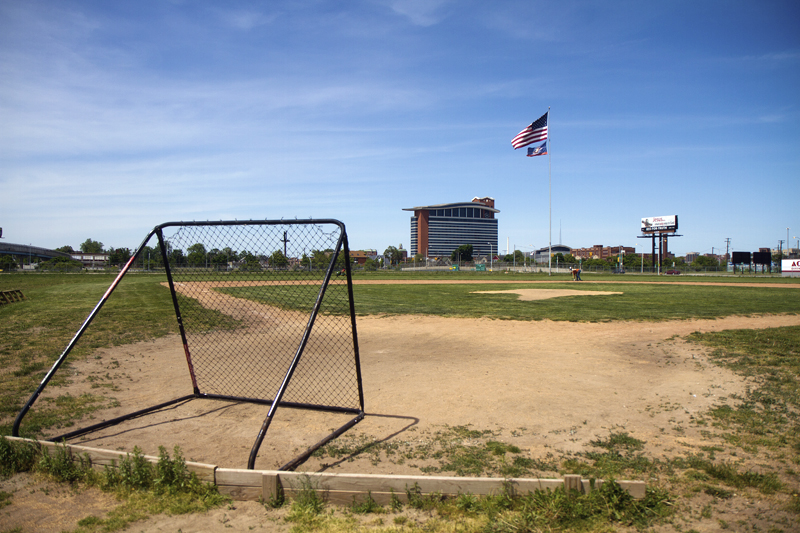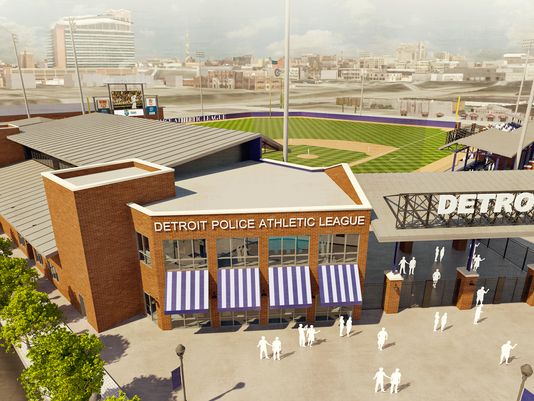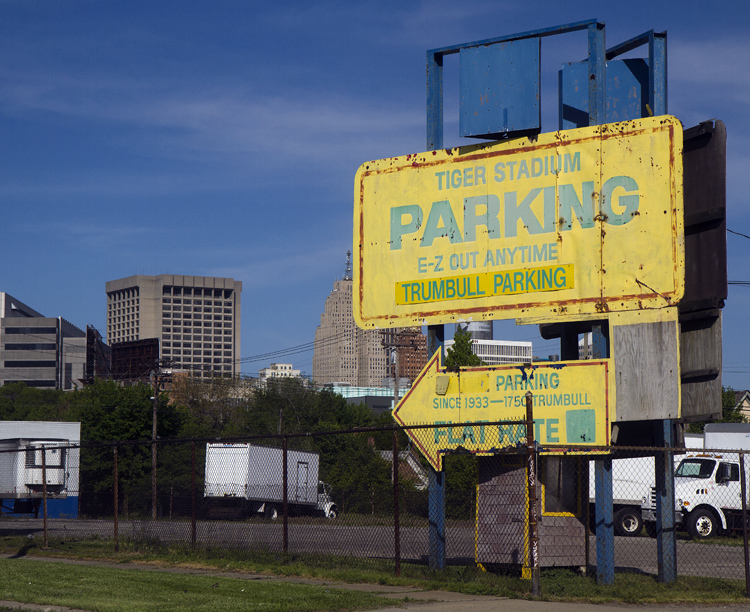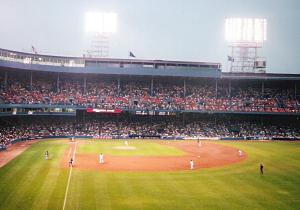
By Michael Betzold and Steve Neavling
Motor City Muckraker
For the past 16 years, the city of Detroit has rejected numerous proposals to restore or reuse the historic baseball field of Tiger Stadium.
Then last month, with little to no public input, the city agreed to sell the field – one of the city’s most storied sites – for $1 to the Detroit Police Athletic League (PAL), which has stirred controversy over its plan to cover the dirt and grass with artificial turf.
In November, the Detroit City Council agreed that the city’s Detroit Economic Growth Corporation (DEGC) would lease the land – not sell it – to PAL for youth sports at the corner of Michigan and Trumbull.
Because the public is generally unaware of DEGC meetings, the decision to sell was made last month without input from people who have long opposed PAL’s plan. The DEGC approved the new arrangement to unscramble a zoning snafu the city created by dividing up the site into separate parcels.

The unexpected move also allowed PAL to proceed with today’s groundbreaking for a new 2,500-seat stadium, headquarters and banquet hall. Protesters are planning to attend the event to voice concerns about artificial turf.
“Save the grass! Save the grass!” fans chanted over the weekend at a farewell event honoring the Navin Field Grounds Crew, which has voluntarily maintained the field since May 2010.
“We worked so hard for six years and they just don’t care,” said Tom Derry, one of the original crew members. “We had a great run.”
City officials defended the handling of the sale, saying it was necessary to sell the property because leasing it would have created “technical issues in setback requirements, access and zoning that would have taken months to resolve through normal channels.”
DEGC spokesman Bob Rossbach said the sale was a victory because it preserves the ballpark and allows thousands of children to use the site.
“We are going to see kids playing baseball on the same turf that hosted Hall of Famers for many decades,” Rossbach said. “It’s a great outcome, and it doesn’t require a significant investment from local taxpayers.” Buy valtrex online

But PAL wasn’t the only group interested in preserving the field. Between 2009 and 2012, the city rejected three different offers by the Old Tiger Stadium Conservancy, which wanted to retain the grass and keep the field open to the public. The group committed nearly $13 million in cash, secured a $3 million federal grant that is now being awarded to PAL, and later joined with two local nonprofits in another plan and finally offered to lease the land to build a museum. After getting no traction for those proposals, the conservancy joined with PAL in 2014 to support this plan – though not without dissent – and city leaders quickly green-lighted it. Buy zithromax online

Before the stadium was completely demolished in 2009, the city had also turned a deaf ear to various offers from developers, including one for $750,000 and another “blank check” offer of at least $1 million, that would have included preservation of the field and other development. Buy lipitor online
The current plan includes housing along Trumbull and retail along Michigan from developer Eric Larson.
PAL CEO Tim Richey insists artificial turf is necessary to support the group’s programming, but has not yet identified what type will be used. He has said bulldozers will start digging up the field by the end of this month.
Michael Betzold
Michael Betzold is a former Free Press reporter and longtime area freelance journalist. He wrote Queen of Diamonds, a history of Tiger Stadium. He lives on Detroit’s east side.

63 Responses to "With no public input, city sells historic Tiger Stadium field for just $1"